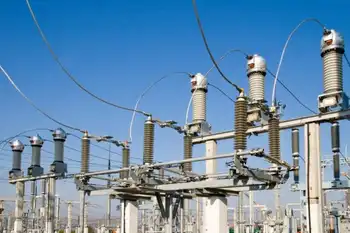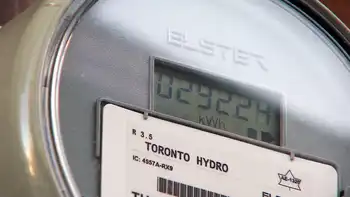Bitcoin consumes 'More electricity than Argentina' - Cambridge

CSA Z463 Electrical Maintenance -
Our customized live online or in‑person group training can be delivered to your staff at your location.

- Live Online
- 6 hours Instructor-led
- Group Training Available
Bitcoin energy consumption is driven by mining electricity demand, with TWh-scale power use, carbon footprint concerns, and Cambridge estimates. Rising prices incentivize more hardware; efficiency gains and renewables adoption shape sustainability outcomes.
Key Points
Bitcoin energy consumption is mining's electricity use, driven by price, device efficiency, and energy mix.
✅ Cambridge tool estimates ~121 TWh annual usage
✅ Rising BTC price incentivizes more mining hardware
✅ Efficiency, renewables, and costs shape footprint
"Mining" for the cryptocurrency is power-hungry, with power curtailments reported during heat waves, involving heavy computer calculations to verify transactions.
Cambridge researchers say it consumes around 121.36 terawatt-hours (TWh) a year - and is unlikely to fall unless the value of the currency slumps, even as Americans use less electricity overall.
Critics say electric-car firm Tesla's decision to invest heavily in Bitcoin undermines its environmental image.
The currency's value hit a record $48,000 (£34,820) this week. following Tesla's announcement that it had bought about $1.5bn bitcoin and planned to accept it as payment in future.
But the rising price offers even more incentive to Bitcoin miners to run more and more machines.
And as the price increases, so does the energy consumption, according to Michel Rauchs, researcher at The Cambridge Centre for Alternative Finance, who co-created the online tool that generates these estimates.
“It is really by design that Bitcoin consumes that much electricity,” Mr Rauchs told BBC’s Tech Tent podcast. “This is not something that will change in the future unless the Bitcoin price is going to significantly go down."
The online tool has ranked Bitcoin’s electricity consumption above Argentina (121 TWh), the Netherlands (108.8 TWh) and the United Arab Emirates (113.20 TWh) - and it is gradually creeping up on Norway (122.20 TWh).
The energy it uses could power all kettles used in the UK, where low-carbon generation stalled in 2019, for 27 years, it said.
However, it also suggests the amount of electricity consumed every year by always-on but inactive home devices in the US alone could power the entire Bitcoin network for a year, and in Canada, B.C. power imports have helped meet demand.
Mining Bitcoin
In order to "mine" Bitcoin, computers - often specialised ones - are connected to the cryptocurrency network.
They have the job of verifying transactions made by people who send or receive Bitcoin.
This process involves solving puzzles, which, while not integral to verifying movements of the currency, provide a hurdle to ensure no-one fraudulently edits the global record of all transactions.
As a reward, miners occasionally receive small amounts of Bitcoin in what is often likened to a lottery.
To increase profits, people often connect large numbers of miners to the network - even entire warehouses full of them, as seen with a Medicine Hat bitcoin operation backed by an electricity deal.
That uses lots of electricity because the computers are more or less constantly working to complete the puzzles, prompting some utilities to consider pauses on new crypto loads in certain regions.
The University of Cambridge tool models the economic lifetime of the world's Bitcoin miners and assumes that all the Bitcoin mining machines worldwide are working with various efficiencies.
Using an average electricity price per kilowatt hour ($0.05) and the energy demands of the Bitcoin network, it is then possible to estimate how much electricity is being consumed at any one time, though in places like China's power sector data can be opaque.











